

How to Build Your Judgment and Critical Thinking
Blessed are the critical thinkers: for they help us understand and find truth..
Posted April 28, 2022 | Reviewed by Lybi Ma
- Each person has the strength of judgment they can tap into.
- A critical thinking blessing is one practical strategy you can use for building this strength.
- Observing the processes of good critical thinkers can help you enhance this strength.

Us vs. them. In-group vs. out-group. Good guys vs. bad guys. Polarization is at an all-time high. What might be an antidote?
One step in the right direction is to increase our character strength of judgment , also called critical thinking . This strength is about the pursuit of truth. It reminds us that truth is not found in impressions, stereotypes, quick glances, and preconceived notions. It is found with a persevering and always-evolving process of reflection, introspection, analysis, and open-mindedness to other views. It is found not by flipping on a political news program but by flipping on your thinking in new ways. It is found not by surfing through social media headlines but by looking for exceptions to your existing views.
How can we build this character strength? One strategy is to observe, study, and learn from those who express the strength well. What does an exemplar of critical thinking say about this strength? How do they act? Let’s find out.
Davis, an accomplished musician and decorated police chief, was a master critical thinker. He has been known throughout his community for his logic and good judgment. He has loved looking at every detail of a situation, especially his beliefs about things. He has been analytical about anything potentially controversial such as spirituality , politics , family life, and personal problems. He doesn't take his beliefs about things for granted. Rather, he goes deeper. He has sought out universal truths (and never took those for granted either).
When interviewed about his critical thinking, Davis offered several insights and practical strategies for appreciating and building this strength.
You are known as a great critical thinker. How do you use this strength of character?
When I am faced with a dilemma or controversy, I ask myself several questions:
- How is my belief or what I’m thinking about now not true ?
- What are the exceptions to my belief?
- What would someone from a different culture or lived experience say about my ideas?
- What am I missing, forgetting, or not including?
- If I wouldn’t stake my life on my conclusion or my belief, what part of it makes me most hesitant?
- If I was to become just a little bit more accurate or get a bit more detail on the situation, what would it be?
Wow, you really have a solid approach of “drilling down” to get to the core of that which is most essential.
I think of it like I am peeling layers of veneer in my mind. I try to peel away my first impression and I peel away my biases such as the automatic tendency to look for support for my beliefs. I peel away the layer of expectations I have of society. I peel away my automatic reactions to please or to impress others. I just keep going in the pursuit of a greater truth. Then, I remind myself that that greater truth I find is not perfect and absolute and finished, but it is better than what I started with.
Judgment or critical thinking is the ultimate “mind strength.” Doesn’t that mean you get lost in your head and miss the heart?
I see the mind and heart as one. They are completely interconnected. Each offers a different lens or starting point. A good critical thinker sees and experiences both of these lenses and others. My typical approach is to start with the analyses I mentioned to get past the multitude of biases I am subject to. I know that when I get closer to a truth I am touching my heart. I can feel it in my chest. Some people do this process in reverse and start with the heart. Each person makes their own decision on what’s best for them.
Spoken like a true critical thinker. Who takes the reverse process? Can you offer an example?
Actually, I do. As a critical thinker, I don’t want to get locked into one approach. It behooves me to be open to different analyses and ways of interacting. For example, when a person is very locked into a particular way of thinking that I perceive to be unhealthy or have negative consequences, my first step is to “appeal to their heart.” I empathize with them; I show them understanding, even though I may not agree with them. I can always offer that gift of understanding. I might also share with them how their views do not seem to align with their values. From there, my critical thinking helps me provide details and logical reasons for the misalignment I perceive. Still, I maintain an open-mindedness to be wrong, to be challenged, to be corrected.
What you are describing seems to have implications that go far beyond you and the people you interact with. How would you describe the potential of your approach?
I think of the pursuit of truth as very spiritual. A universal truth provides connection and sustenance between people. It reaches and expresses our common humanity. This is of great importance to philosophers, proponents of religion, and people across nations. When a truth is identified, there is greater acceptance within a divided group and across groups. This reminds us of some of the spiritual truths of the human condition that we are more alike than different, genetically speaking 99.9 percent the same, and also that all of us on the planet are all in this together.
Getting Practical: Use the Critical Thinking Blessing
You can use the critical thinking-judgment beatitude, "Blessed are the critical thinkers: for they help us understand and find truth" (Niemiec, 2021), to appreciate the depth of this strength of critical thinking-judgment in yourself and in others.

- In yourself : In what situations has this beatitude been a reality for you?
- In others : Identify someone in your life who is high in critical thinking-judgment. Explain to them how you have benefitted from observing and experiencing this strength from them.
This article is part of an exclusive blog series on the 24 character strengths blessings/beatitudes. See the new, scientific article, called Character Strengths Beatitudes: A Secular Application of Ancient Wisdom to Appreciate Strengths for Spiritual Happiness and Spiritual Growth (Niemiec, 2021), published in the journal Religions .
Judgment/critical thinking is one of 24 universal character strengths found across countries, cultures, and beliefs, as uncovered by modern-day scientists.

Ryan M. Niemiec, Psy.D. , is the education director at the VIA Institute on Character.
- Find a Therapist
- Find a Treatment Center
- Find a Psychiatrist
- Find a Support Group
- Find Online Therapy
- United States
- Brooklyn, NY
- Chicago, IL
- Houston, TX
- Los Angeles, CA
- New York, NY
- Portland, OR
- San Diego, CA
- San Francisco, CA
- Seattle, WA
- Washington, DC
- Asperger's
- Bipolar Disorder
- Chronic Pain
- Eating Disorders
- Passive Aggression
- Personality
- Goal Setting
- Positive Psychology
- Stopping Smoking
- Low Sexual Desire
- Relationships
- Child Development
- Self Tests NEW
- Therapy Center
- Diagnosis Dictionary
- Types of Therapy

It’s increasingly common for someone to be diagnosed with a condition such as ADHD or autism as an adult. A diagnosis often brings relief, but it can also come with as many questions as answers.
- Emotional Intelligence
- Gaslighting
- Affective Forecasting
- Neuroscience

- Get started with computers
- Learn Microsoft Office
- Apply for a job
- Improve my work skills
- Design nice-looking docs
- Getting Started
- Smartphones & Tablets
- Typing Tutorial
- Online Learning
- Basic Internet Skills
- Online Safety
- Social Media
- Zoom Basics
- Google Docs
- Google Sheets
- Career Planning
- Resume Writing
- Cover Letters
- Job Search and Networking
- Business Communication
- Entrepreneurship 101
- Careers without College
- Job Hunt for Today
- 3D Printing
- Freelancing 101
- Personal Finance
- Sharing Economy
- Decision-Making
- Graphic Design
- Photography
- Image Editing
- Learning WordPress
- Language Learning
- Critical Thinking
- For Educators
- Translations
- Staff Picks
- English expand_more expand_less
Critical Thinking and Decision-Making - What is Critical Thinking?
Critical thinking and decision-making -, what is critical thinking, critical thinking and decision-making what is critical thinking.

Critical Thinking and Decision-Making: What is Critical Thinking?
Lesson 1: what is critical thinking, what is critical thinking.
Critical thinking is a term that gets thrown around a lot. You've probably heard it used often throughout the years whether it was in school, at work, or in everyday conversation. But when you stop to think about it, what exactly is critical thinking and how do you do it ?
Watch the video below to learn more about critical thinking.
Simply put, critical thinking is the act of deliberately analyzing information so that you can make better judgements and decisions . It involves using things like logic, reasoning, and creativity, to draw conclusions and generally understand things better.
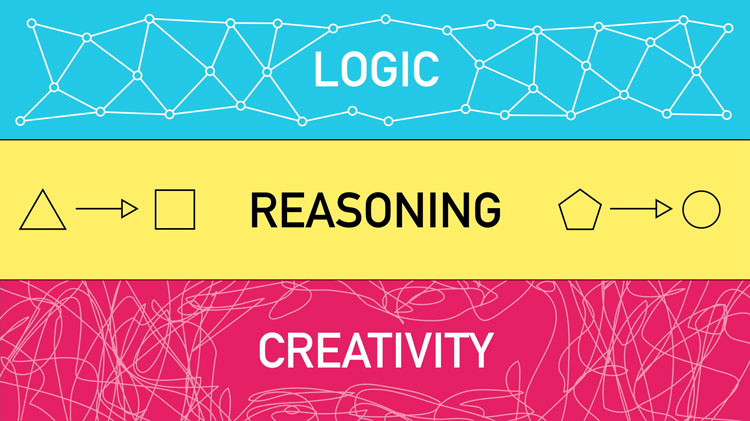
This may sound like a pretty broad definition, and that's because critical thinking is a broad skill that can be applied to so many different situations. You can use it to prepare for a job interview, manage your time better, make decisions about purchasing things, and so much more.
The process
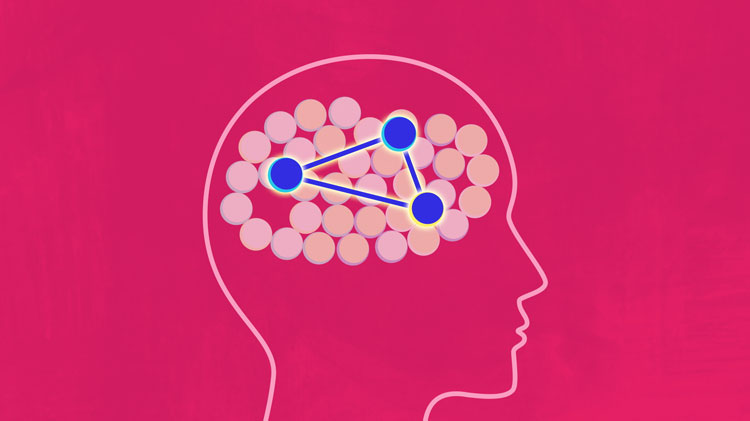
As humans, we are constantly thinking . It's something we can't turn off. But not all of it is critical thinking. No one thinks critically 100% of the time... that would be pretty exhausting! Instead, it's an intentional process , something that we consciously use when we're presented with difficult problems or important decisions.
Improving your critical thinking
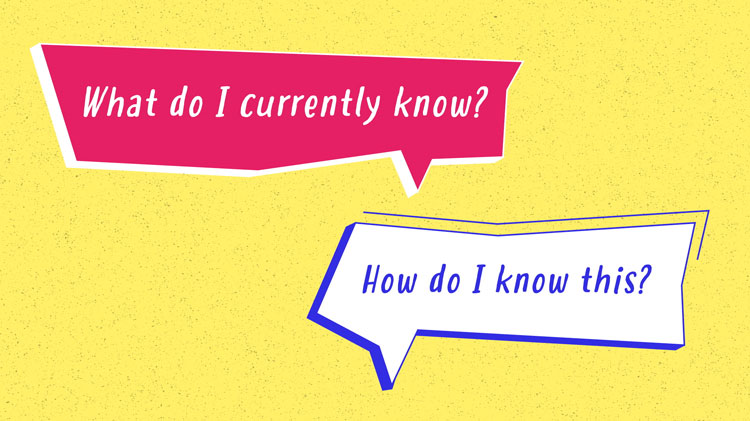
In order to become a better critical thinker, it's important to ask questions when you're presented with a problem or decision, before jumping to any conclusions. You can start with simple ones like What do I currently know? and How do I know this? These can help to give you a better idea of what you're working with and, in some cases, simplify more complex issues.
Real-world applications
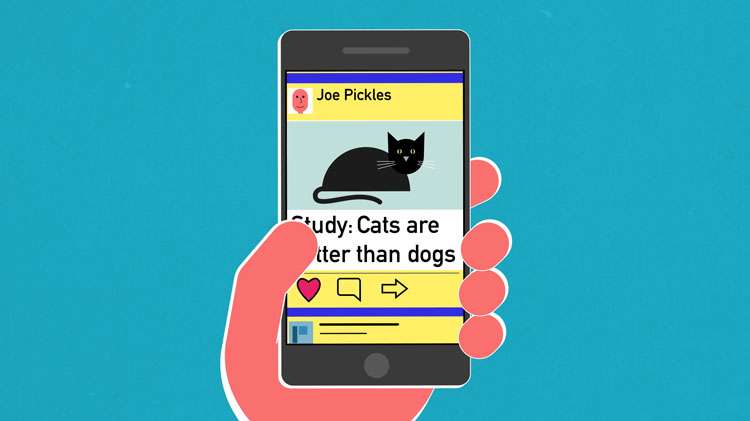
Let's take a look at how we can use critical thinking to evaluate online information . Say a friend of yours posts a news article on social media and you're drawn to its headline. If you were to use your everyday automatic thinking, you might accept it as fact and move on. But if you were thinking critically, you would first analyze the available information and ask some questions :
- What's the source of this article?
- Is the headline potentially misleading?
- What are my friend's general beliefs?
- Do their beliefs inform why they might have shared this?
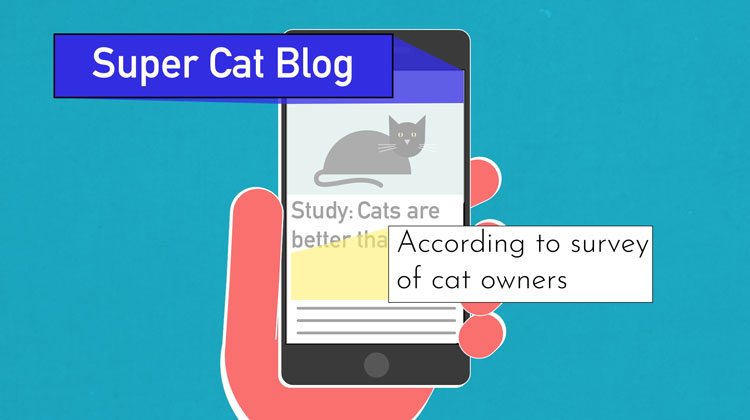
After analyzing all of this information, you can draw a conclusion about whether or not you think the article is trustworthy.
Critical thinking has a wide range of real-world applications . It can help you to make better decisions, become more hireable, and generally better understand the world around you.

/en/problem-solving-and-decision-making/why-is-it-so-hard-to-make-decisions/content/
- SUGGESTED TOPICS
- The Magazine
- Newsletters
- Managing Yourself
- Managing Teams
- Work-life Balance
- The Big Idea
- Data & Visuals
- Case Selections
- HBR Learning
- Topic Feeds
- Account Settings
- Email Preferences
The Elements of Good Judgment
- Sir Andrew Likierman

Judgment—the ability to combine personal qualities with relevant knowledge and experience to form opinions and make decisions—is “the core of exemplary leadership,” according to Noel Tichy and Warren Bennis (the authors of Judgment: How Winning Leaders Make Great Calls ). It is what enables a sound choice in the absence of clear-cut, relevant data or an obvious path. Likierman believes that a more precise understanding of what exactly gives someone good judgment may make it possible for people to learn and improve on it. He approached CEOs at a range of companies, from some of the world’s largest right down to start-ups, along with leaders in the professions: senior partners at law and accountancy firms, generals, doctors, scientists, priests, and diplomats. He asked them to share their observations of their own and other people’s exercise of judgment so that he could identify the skills and behaviors that collectively create the conditions for fresh insights and enable decision makers to discern patterns that others miss. As a result, he has identified six key elements that collectively constitute good judgment: learning, trust, experience, detachment, options, and delivery. He describes these elements and offers suggestions for improvement in each one.
How to improve your decision-making
Idea in Brief
The objective.
A manager’s core function is to exercise judgment—to form views and interpret ambiguous evidence in a way that will lead to a good decision.
The Challenge
We have no clear framework for learning good judgment or recognizing it in others. To evaluate a leader’s judgment, we often rely on his or her track record, which can be misleading.
The Solution
This article identifies six components that contribute to good judgment: learning, trust, experience, detachment, options, and delivery. By working on each, leaders can improve their ability to make sense of an ambiguous situation.
A decision must be made. The facts have been assembled, and the arguments for and against the options spelled out, but no clear evidence supports any particular one. Now people around the table turn to the CEO. What they’re looking for is good judgment—an interpretation of the evidence that points to the right choice.
- SL Sir Andrew Likierman is a professor at London Business School and a director of Times Newspapers and the Beazley Group, both also in London. He has served as dean at LBS and is a former director of the Bank of England.
Partner Center

How to Think Critically: Strategies for Effective Decision-Making
Annie Walls
Critical thinking is an essential skill that allows individuals to analyze information, evaluate arguments, and make informed decisions. By employing critical thinking strategies, individuals can overcome biases, consider multiple perspectives, and arrive at well-reasoned judgments. In this article, we will explore the concept of critical thinking, discuss strategies for developing critical thinking skills, examine how critical thinking can be applied in decision-making, and provide tips for improving critical thinking abilities. By the end, readers will have a better understanding of how to think critically and make effective decisions.
Key Takeaways
- Critical thinking involves analyzing information, evaluating arguments, and making informed decisions.
- Developing critical thinking skills requires practicing analytical thinking, logical reasoning, problem-solving, and creativity.
- Applying critical thinking in decision-making involves gathering and evaluating information, identifying assumptions and biases, considering multiple perspectives, and making informed judgments.
- Cognitive biases, such as confirmation bias and availability bias, can hinder critical thinking and decision-making.
- Improving critical thinking skills can be achieved through reflection, seeking feedback, engaging in debates, and continual learning.
Understanding Critical Thinking
Defining critical thinking.
Critical thinking is a vital skill that allows individuals to analyze and evaluate information objectively, enabling them to make informed decisions. It involves the ability to question assumptions, consider multiple perspectives, and identify biases. By developing critical thinking skills , individuals can enhance their problem-solving abilities and become more effective decision-makers.
Importance of Critical Thinking
Critical thinking is a crucial skill that enables individuals to analyze and evaluate information objectively. It helps in making informed decisions, solving complex problems, and avoiding biases and fallacies. Developing critical thinking skills is essential in today's fast-paced and information-driven world.
Characteristics of a Critical Thinker
A critical thinker possesses several key characteristics that set them apart from others. They have the ability to think independently and objectively, questioning assumptions and seeking evidence to support their conclusions. Curiosity is a fundamental trait of a critical thinker, as they are constantly seeking new information and perspectives. They are also open-minded, willing to consider different viewpoints and evaluate them based on their merits. Additionally, critical thinkers are analytical and have strong problem-solving skills, allowing them to break down complex issues into manageable parts and develop effective solutions.
Developing Critical Thinking Skills
Analytical thinking.
Analytical thinking is a crucial skill for critical thinkers. It involves breaking down complex problems into smaller components and examining them systematically. By analyzing data, facts, and evidence, individuals can gain a deeper understanding of the issue at hand. Analytical thinking allows for objective evaluation and logical reasoning, enabling individuals to make informed decisions.
One effective way to present structured, quantitative data is through a Markdown table. Tables can provide a clear and concise overview of information, making it easier to identify patterns and trends. When using a table, it is important to ensure that the formatting is correct and the data is presented in a succinct manner.
In addition to tables, bulleted or numbered lists can be used to present less structured content. Lists are useful for outlining steps, qualitative points, or a series of related items. They provide a clear and organized format that is easy to follow and understand.
Remember, when analyzing data and information, it is important to remain objective and consider all perspectives. Avoid biases and assumptions that may cloud your judgment.
Improving analytical thinking skills requires practice and continual learning. By regularly engaging in analytical exercises and seeking feedback, individuals can enhance their ability to think critically and make sound decisions.
Logical Reasoning
Logical reasoning is a crucial aspect of critical thinking. It involves the ability to analyze and evaluate arguments based on their logical structure and validity. Sound reasoning allows us to make rational decisions and draw accurate conclusions. Here are some key points to consider when engaging in logical reasoning:
- Identify the premises and conclusions of an argument
- Evaluate the strength of the evidence and reasoning
- Recognize logical fallacies
Remember, logical reasoning is not about personal opinions or emotions, but rather about using objective and rational thinking to arrive at well-founded judgments.
Tip: When evaluating arguments, it can be helpful to break them down into their components and assess each part individually.
Problem Solving
Problem solving is a crucial skill in critical thinking. It involves identifying and analyzing problems, generating potential solutions, and evaluating the effectiveness of those solutions. Creativity plays a significant role in problem solving as it allows for the generation of innovative and out-of-the-box solutions. When faced with a problem, it is important to approach it with an open mind and think creatively to find the best possible solution.
Here are some strategies that can be helpful in problem solving:
- Brainstorming : This technique involves generating a large number of ideas without judgment. It encourages free thinking and allows for the exploration of various possibilities.
- Mind mapping : Mind mapping is a visual technique that helps organize thoughts and ideas. It allows for the identification of relationships between different elements and can aid in finding creative solutions.
Remember, problem solving requires both analytical thinking and creativity. By combining these two skills, you can approach problems from different angles and find innovative solutions.
Creativity and Innovation
Creativity and innovation are essential components of critical thinking. Creativity involves generating new ideas, concepts, and solutions, while innovation is the process of implementing these ideas to create value. In the context of decision-making, creativity and innovation play a crucial role in finding unique and effective solutions to problems.
To foster creativity and innovation, individuals can employ various techniques and strategies. Some of these include:
- Brainstorming : This technique involves generating a large number of ideas without judgment or evaluation. It encourages free thinking and allows for the exploration of different possibilities.
- Mind Mapping : Mind mapping is a visual technique that helps organize thoughts and ideas. It allows for the connection of related concepts and the exploration of different relationships.
- Divergent Thinking : Divergent thinking involves thinking outside the box and considering multiple perspectives and possibilities.
By incorporating these techniques, individuals can enhance their creative and innovative thinking abilities, leading to more effective decision-making processes.
Applying Critical Thinking in Decision-Making
Gathering and evaluating information.
Gathering and evaluating information is a crucial step in the critical thinking process. It involves collecting relevant data and facts from reliable sources to inform decision-making. This step helps ensure that decisions are based on accurate and up-to-date information. To gather information effectively, it is important to:
Identifying Assumptions and Biases
When making decisions, it is important to be aware of the assumptions and biases that may influence our thinking. Assumptions are beliefs or ideas that we take for granted without questioning them. They can shape our perception of a situation and affect the choices we make. Biases, on the other hand, are preconceived notions or prejudices that can cloud our judgment. They can lead us to favor certain options or overlook important information.
To identify assumptions and biases, it is helpful to engage in critical thinking and reflection. We can ask ourselves questions like:
- What assumptions am I making about this situation?
- Are these assumptions based on evidence or personal beliefs?
- Am I favoring certain options because of my biases?
By challenging our assumptions and biases, we can make more informed decisions and avoid potential pitfalls. It is important to approach decision-making with an open mind and consider multiple perspectives. This can help us overcome biases and make choices that are based on rational thinking and evidence.
Considering Multiple Perspectives
When making decisions, it is important to consider multiple perspectives to gain a comprehensive understanding of the situation. Empathy plays a crucial role in this process, as it allows us to put ourselves in others' shoes and understand their viewpoints.
One way to incorporate multiple perspectives is by engaging in active listening . This involves giving full attention to the speaker, suspending judgment, and seeking to understand their point of view. By actively listening, we can gain valuable insights and challenge our own assumptions.
Another strategy is to seek diverse opinions . This can be done by involving individuals with different backgrounds, experiences, and expertise in the decision-making process. By doing so, we can uncover blind spots, identify potential risks, and generate innovative solutions.
It is also important to consider the long-term consequences of our decisions. This requires thinking beyond immediate outcomes and considering how different perspectives may impact various stakeholders over time.
Remember, considering multiple perspectives allows us to make more informed and well-rounded decisions.
Making Informed Judgments
Making informed judgments is a crucial aspect of critical thinking. It involves carefully evaluating the available information and considering multiple perspectives before reaching a conclusion. By gathering and analyzing relevant data, we can make more informed decisions that are based on evidence rather than assumptions or biases. It is important to be aware of our own biases and assumptions and actively seek out diverse viewpoints to ensure a well-rounded judgment. Additionally, considering the potential consequences of our decisions can help us make more ethical and responsible choices.
Overcoming Cognitive Biases
Confirmation bias.
Confirmation bias is a common cognitive bias that affects our decision-making process. It refers to the tendency to seek out and interpret information in a way that confirms our preexisting beliefs or hypotheses. This bias can lead us to ignore or dismiss evidence that contradicts our beliefs, and instead, focus on information that supports what we already think.
One way to overcome confirmation bias is to actively seek out information that challenges our beliefs. By exposing ourselves to different perspectives and considering alternative viewpoints, we can broaden our understanding and make more informed decisions.
Here are a few strategies to help overcome confirmation bias:
- Engage in critical thinking and question your own assumptions.
- Seek out diverse sources of information and consider multiple viewpoints.
- Challenge your own beliefs and be open to changing your mind.
Remember, overcoming confirmation bias is crucial for effective decision-making and critical thinking.
Availability Bias
Availability bias is a cognitive bias that occurs when people rely on immediate examples or information that comes to mind when making decisions or judgments. It is a mental shortcut that can lead to errors in thinking and decision-making. When people are influenced by availability bias, they tend to overestimate the likelihood of events or situations that are easily recalled or readily available in their memory. This bias can impact various aspects of life, including personal relationships, financial decisions, and even professional judgments.
Anchoring Bias
Anchoring bias is a cognitive bias that occurs when individuals rely too heavily on an initial piece of information (the anchor) when making decisions or judgments. This bias can lead to errors in judgment and decision-making, as it limits the consideration of other relevant information. For example, if a person is given a high price as the anchor for a product, they may perceive any subsequent lower price as a good deal, even if it is still relatively expensive.
To overcome anchoring bias, it is important to be aware of its influence and actively seek out additional information and perspectives. By considering a wider range of information and challenging the initial anchor, individuals can make more informed and unbiased decisions.
Here are some strategies to overcome anchoring bias:
- Question the initial anchor: Instead of accepting the initial information as the sole basis for decision-making, question its validity and consider alternative anchors.
- Seek diverse perspectives: Engage with different viewpoints and gather a variety of opinions to broaden your understanding of the situation.
- Use decision-making frameworks: Utilize structured decision-making frameworks that encourage a systematic evaluation of all relevant factors.
Remember, anchoring bias can limit your ability to make objective decisions. By actively challenging the initial anchor and considering a wider range of information, you can overcome this bias and make more informed choices.

Hindsight Bias
Hindsight bias is a cognitive bias that refers to the tendency of individuals to believe that an event was more predictable or foreseeable than it actually was, after it has occurred. This bias often leads people to overestimate their ability to have predicted an outcome or to believe that they would have made different decisions if they had known the outcome beforehand.
To overcome hindsight bias, it is important to recognize that the outcome of an event does not necessarily reflect the quality of the decision-making process. It is crucial to evaluate decisions based on the information available at the time and to avoid judging them solely based on the outcome.
Here are some strategies to help overcome hindsight bias:
- Practice self-reflection and analyze your decision-making process without the influence of hindsight.
- Seek feedback from others to gain different perspectives and insights.
- Consider alternative explanations and possibilities that could have influenced the outcome.
- Continually learn and update your knowledge and skills to make more informed decisions in the future.
Remember, overcoming hindsight bias requires conscious effort and a willingness to challenge your own assumptions and beliefs.
Improving Critical Thinking Skills
Practicing reflection.
Reflection is a crucial component of developing critical thinking skills. It involves taking the time to analyze and evaluate our thoughts, actions, and experiences. By reflecting on our decision-making processes, we can gain valuable insights and identify areas for improvement.
One effective way to practice reflection is through journaling. By writing down our thoughts and experiences, we can better understand our own biases, assumptions, and patterns of thinking. Journaling also allows us to track our progress and identify any recurring challenges or obstacles.
Additionally, engaging in meaningful conversations with others can provide different perspectives and challenge our own beliefs. By actively listening and considering alternative viewpoints, we can broaden our understanding and enhance our critical thinking abilities.
Remember, reflection is not a one-time activity but an ongoing practice. By regularly reflecting on our thoughts and actions, we can continue to refine our critical thinking skills and make more informed decisions.
Seeking Feedback
Seeking feedback is an essential part of developing critical thinking skills. By actively seeking input from others, we can gain valuable insights and different perspectives that can help us refine our ideas and improve our decision-making. Feedback can come from various sources, such as colleagues, mentors, or even customers. It is important to approach feedback with an open mind and a willingness to learn and grow. Receiving constructive criticism can be challenging, but it is an opportunity for personal and professional development. By incorporating feedback into our thought process, we can enhance our critical thinking abilities and make more informed judgments.
Engaging in Debates
Engaging in debates is a valuable way to enhance critical thinking skills and broaden your perspective. It allows you to challenge your own beliefs and consider alternative viewpoints. When engaging in debates, it is important to approach the discussion with an open mind and a willingness to listen to others. Active listening is key to understanding different perspectives and finding common ground.
To make the most out of debates, consider the following:
- Prepare : Research the topic beforehand to gather relevant information and evidence to support your arguments.
- Stay focused : Stick to the topic at hand and avoid personal attacks or getting off track.
- Respectful communication : Use respectful language and tone when expressing your opinions and engaging with others.
Remember, the goal of a debate is not necessarily to win, but to exchange ideas and gain a deeper understanding of the topic. By engaging in debates, you can sharpen your critical thinking skills and become a more effective decision-maker.
Continual Learning
Continual learning is a key aspect of developing critical thinking skills. It involves actively seeking out new knowledge and information, and continuously expanding one's understanding of various subjects. By engaging in continual learning, individuals can stay updated with the latest developments in their field and broaden their perspectives. This can be done through various methods such as reading books and articles, attending workshops and seminars, taking online courses, or participating in professional development programs. Embracing a growth mindset and being open to learning from different sources can greatly enhance one's critical thinking abilities.
Improving Critical Thinking Skills is essential in today's fast-paced and complex world. It allows us to analyze information, solve problems, and make informed decisions. Whether you're a student, professional, or entrepreneur, honing your critical thinking skills can greatly benefit your personal and professional life. By developing the ability to think critically, you can navigate through challenges, identify opportunities, and come up with innovative solutions. If you're looking to enhance your critical thinking skills, visit Keynote Speaker James Taylor's website. James Taylor is an internationally recognized leader in business creativity and innovation. His website offers valuable resources, insights, and strategies to help you improve your critical thinking abilities. Don't miss out on this opportunity to take your thinking to the next level!
In conclusion, developing critical thinking skills is essential for effective decision-making. By employing strategies such as analyzing information , evaluating evidence , and considering alternative perspectives , individuals can make more informed choices. Critical thinking allows us to navigate complex situations, challenge assumptions, and arrive at well-reasoned conclusions. It is a valuable skill that can be honed through practice and application in various aspects of life. So, start cultivating your critical thinking abilities today and enhance your decision-making prowess.
Frequently Asked Questions
What is critical thinking.
Critical thinking is the ability to analyze and evaluate information objectively, using logical reasoning and evidence-based decision-making.
Why is critical thinking important?
Critical thinking is important because it helps individuals make informed decisions, solve problems effectively, and avoid biases and fallacies.
What are the characteristics of a critical thinker?
Critical thinkers are open-minded, curious, logical, reflective, and able to consider multiple perspectives.
How can I develop analytical thinking skills?
You can develop analytical thinking skills by practicing observation, analysis, interpretation, and evaluation of information and data.
What is logical reasoning?
Logical reasoning is the process of using valid and reliable evidence to support arguments and make logical conclusions.
How can critical thinking be applied in decision-making?
Critical thinking can be applied in decision-making by gathering and evaluating relevant information, identifying assumptions and biases, considering multiple perspectives, and making informed judgments.

Popular Posts
Robert hannigan – the power of neurodiversity in innovation, cybersecurity, gchq and counter-intelligence #342.
Explore key insights on intelligence and decision-making from Professor Sir David Omand’s book, focusing on critical thinking and creativity.
Sam Dixon of Womble Bond Dickinson, The Evolving Role of Lawyers in the AI Era #341
John craske of cms, collaboration between humans and machines in the legal industry #340, jd meier of microsoft, productivity strategies for success #339, sir david omand, author of how spies think – 10 lessons in critical thinking #338, meilleur conférencier principal en teambuilding.
Les conférences virtuelles et les sommets peuvent être des moyens très efficaces pour inspirer, informer
James is a top motivational keynote speaker who is booked as a creativity and innovation keynote speaker, AI speaker , sustainability speaker and leadership speaker . Recent destinations include: Dubai , Abu Dhabi , Orlando , Las Vegas , keynote speaker London , Barcelona , Bangkok , Miami , Berlin , Riyadh , New York , Zurich , motivational speaker Paris , Singapore and San Francisco
Latest News
- 415.800.3059
- [email protected]
- Media Interviews
- Meeting Planners
- Terms of Use
- Privacy Policy
- Cookie Policy
FIND ME ON SOCIAL
© 2024 James Taylor DBA P3 Music Ltd.
- Resources ›
- For Students and Parents ›
Critical Thinking Definition, Skills, and Examples
- Homework Help
- Private School
- College Admissions
- College Life
- Graduate School
- Business School
- Distance Learning
:max_bytes(150000):strip_icc():format(webp)/ADHeadshot-Cropped-b80e40469d5b4852a68f94ad69d6e8bd.jpg)
- Indiana University, Bloomington
- State University of New York at Oneonta
Critical thinking refers to the ability to analyze information objectively and make a reasoned judgment. It involves the evaluation of sources, such as data, facts, observable phenomena, and research findings.
Good critical thinkers can draw reasonable conclusions from a set of information, and discriminate between useful and less useful details to solve problems or make decisions. These skills are especially helpful at school and in the workplace, where employers prioritize the ability to think critically. Find out why and see how you can demonstrate that you have this ability.
Examples of Critical Thinking
The circumstances that demand critical thinking vary from industry to industry. Some examples include:
- A triage nurse analyzes the cases at hand and decides the order by which the patients should be treated.
- A plumber evaluates the materials that would best suit a particular job.
- An attorney reviews the evidence and devises a strategy to win a case or to decide whether to settle out of court.
- A manager analyzes customer feedback forms and uses this information to develop a customer service training session for employees.
Why Do Employers Value Critical Thinking Skills?
Employers want job candidates who can evaluate a situation using logical thought and offer the best solution.
Someone with critical thinking skills can be trusted to make decisions independently, and will not need constant handholding.
Hiring a critical thinker means that micromanaging won't be required. Critical thinking abilities are among the most sought-after skills in almost every industry and workplace. You can demonstrate critical thinking by using related keywords in your resume and cover letter and during your interview.
How to Demonstrate Critical Thinking in a Job Search
If critical thinking is a key phrase in the job listings you are applying for, be sure to emphasize your critical thinking skills throughout your job search.
Add Keywords to Your Resume
You can use critical thinking keywords (analytical, problem solving, creativity, etc.) in your resume. When describing your work history, include top critical thinking skills that accurately describe you. You can also include them in your resume summary, if you have one.
For example, your summary might read, “Marketing Associate with five years of experience in project management. Skilled in conducting thorough market research and competitor analysis to assess market trends and client needs, and to develop appropriate acquisition tactics.”
Mention Skills in Your Cover Letter
Include these critical thinking skills in your cover letter. In the body of your letter, mention one or two of these skills, and give specific examples of times when you have demonstrated them at work. Think about times when you had to analyze or evaluate materials to solve a problem.
Show the Interviewer Your Skills
You can use these skill words in an interview. Discuss a time when you were faced with a particular problem or challenge at work and explain how you applied critical thinking to solve it.
Some interviewers will give you a hypothetical scenario or problem, and ask you to use critical thinking skills to solve it. In this case, explain your thought process thoroughly to the interviewer. He or she is typically more focused on how you arrive at your solution rather than the solution itself. The interviewer wants to see you analyze and evaluate (key parts of critical thinking) the given scenario or problem.
Of course, each job will require different skills and experiences, so make sure you read the job description carefully and focus on the skills listed by the employer.
Top Critical Thinking Skills
Keep these in-demand skills in mind as you refine your critical thinking practice —whether for work or school.
Part of critical thinking is the ability to carefully examine something, whether it is a problem, a set of data, or a text. People with analytical skills can examine information, understand what it means, and properly explain to others the implications of that information.
- Asking Thoughtful Questions
- Data Analysis
- Interpretation
- Questioning Evidence
- Recognizing Patterns
Communication
Often, you will need to share your conclusions with your employers or with a group of classmates or colleagues. You need to be able to communicate with others to share your ideas effectively. You might also need to engage in critical thinking in a group. In this case, you will need to work with others and communicate effectively to figure out solutions to complex problems.
- Active Listening
- Collaboration
- Explanation
- Interpersonal
- Presentation
- Verbal Communication
- Written Communication
Critical thinking often involves creativity and innovation. You might need to spot patterns in the information you are looking at or come up with a solution that no one else has thought of before. All of this involves a creative eye that can take a different approach from all other approaches.
- Flexibility
- Conceptualization
- Imagination
- Drawing Connections
- Synthesizing
Open-Mindedness
To think critically, you need to be able to put aside any assumptions or judgments and merely analyze the information you receive. You need to be objective, evaluating ideas without bias.
- Objectivity
- Observation
Problem-Solving
Problem-solving is another critical thinking skill that involves analyzing a problem, generating and implementing a solution, and assessing the success of the plan. Employers don’t simply want employees who can think about information critically. They also need to be able to come up with practical solutions.
- Attention to Detail
- Clarification
- Decision Making
- Groundedness
- Identifying Patterns
More Critical Thinking Skills
- Inductive Reasoning
- Deductive Reasoning
- Noticing Outliers
- Adaptability
- Emotional Intelligence
- Brainstorming
- Optimization
- Restructuring
- Integration
- Strategic Planning
- Project Management
- Ongoing Improvement
- Causal Relationships
- Case Analysis
- Diagnostics
- SWOT Analysis
- Business Intelligence
- Quantitative Data Management
- Qualitative Data Management
- Risk Management
- Scientific Method
- Consumer Behavior
Key Takeaways
- Demonstrate you have critical thinking skills by adding relevant keywords to your resume.
- Mention pertinent critical thinking skills in your cover letter, too, and include an example of a time when you demonstrated them at work.
- Finally, highlight critical thinking skills during your interview. For instance, you might discuss a time when you were faced with a challenge at work and explain how you applied critical thinking skills to solve it.
University of Louisville. " What is Critical Thinking ."
American Management Association. " AMA Critical Skills Survey: Workers Need Higher Level Skills to Succeed in the 21st Century ."
- 18 Ways to Practice Spelling Words
- The 16 SEC Schools
- Sample Appeal Letter for an Academic Dismissal
- List of Supplies for High School Students
- Higher-Order Thinking Skills (HOTS) in Education
- How to Find the Main Idea
- Understanding Very Big Numbers
- 100 Persuasive Speech Topics for Students
- Introduction to Critical Thinking
- Foreign Language Requirement for College Admissions
- Fostering Cultural Diversity in Your School
- GRE Text Completion Examples
- ACT Science Reasoning Information
- Controversial Speech Topics
- Free Online Computer Classes
- Undergraduate Courses That Are Recommended for Law School

IMAGES
VIDEO
COMMENTS
One step in the right direction is to increase our character strength of judgment, also called critical thinking. This strength is about the pursuit of truth.
Learn how to harness critical thinking to make better decisions, resolve conflicts and overcome cognitive biases to see the world clearly and solve problems.
Simply put, critical thinking is the act of deliberately analyzing information so that you can make better judgements and decisions. It involves using things like logic, reasoning, and creativity, to draw conclusions and generally understand things better.
Judgment—the ability to combine personal qualities with relevant knowledge and experience to form opinions and make decisions—is “the core of exemplary leadership,” according to Noel Tichy and...
Critical thinking is important for making judgments about sources of information and forming your own arguments. It emphasizes a rational, objective, and self-aware approach that can help you to identify credible sources and strengthen your conclusions.
Critical thinking allows a person to analyze information and make an objective judgment. By impartially evaluating the facts related to a matter, you can draw realistic conclusions that will help you make a sound decision.
Critical Thinking is the process of using and assessing reasons to evaluate statements, assumptions, and arguments in ordinary situations. The goal of this process is to help us have good beliefs, where “good” means that our beliefs meet certain goals of thought, such as truth, usefulness, or rationality. Critical thinking is widely ...
Critical thinking is an essential skill that allows individuals to analyze information, evaluate arguments, and make informed decisions. By employing critical thinking strategies, individuals can overcome biases, consider multiple perspectives, and arrive at well-reasoned judgments.
Critical thinking refers to the ability to analyze information objectively and make a reasoned judgment. It involves the evaluation of sources, such as data, facts, observable phenomena, and research findings.
What does critical judgement mean? The terms critical judgement and critical thinking are both used to refer to more or less the same idea. In our everyday lives we usually think of being critical as meaning to say negative things about something or someone.